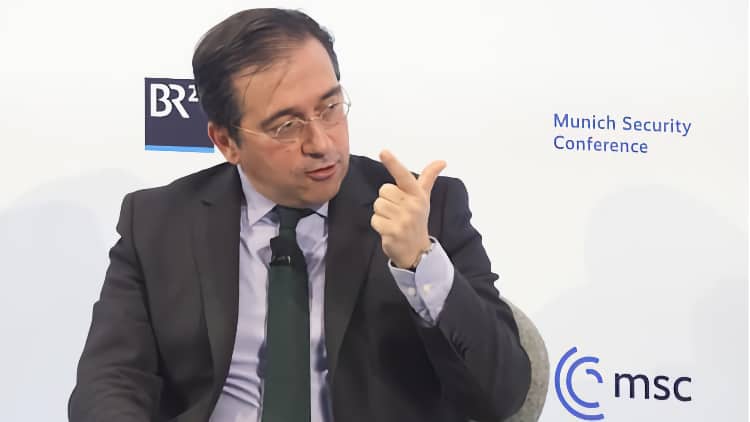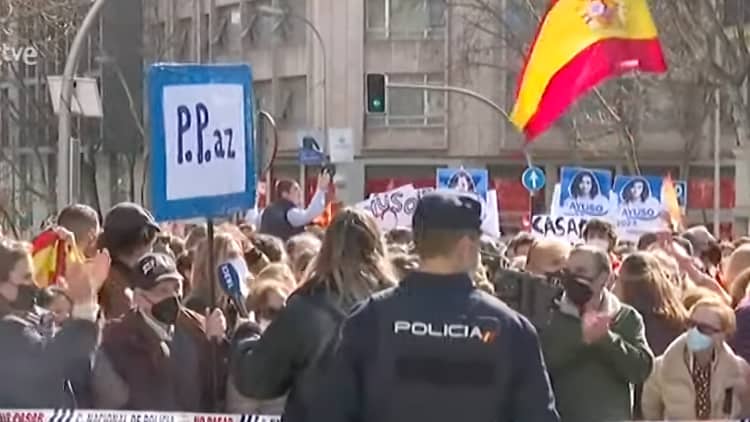The Diplomat
The Minister of Foreign Affairs, José Manuel Albares, assured yesterday that “nobody” in NATO is preparing for a war between Russia and Ukraine, but warned that they will be and are “prepared to respond to any threat”.
He said this in statements to RTVE after taking part in the second and final day of the Munich Security Conference, where he stressed the importance of the EU remaining united and cohesive to face current challenges, such as the crisis in Ukraine, reports Europa Press.
According to him, “all” countries agree that Russia could invade Ukraine “at any time”, but the international community wants to “give priority to dialogue” with Russia.
“This crisis, in addition to achieving this unity between European and transatlantic partners, has highlighted the indivisibility of security in Europe, and that what is at stake at the moment on the eastern border of the EU is the responsibility of the countries of the south, just as the threats from the south are the responsibility of the countries of the east”, he said, while stressing this “unity in dialogue and in dissuasion if necessary”.
In the context of this conflict, Albares called for a “rethink of the world we live in” as well as “Europe’s role on every stage of the world”. “There is a commitment to an ecological transition that leads us to opt for some energy sources over others,” he said, when asked about Europe’s dependence on Russia for gas imports.
During the conference, the minister highlighted the EU’s unity in relation to the crisis in Ukraine. “We are convinced as a government and as a country that the great challenges we now face as countries only have a European response,” he said.
In his opinion, “united” we will be able to face challenges such as climate change, security threats, rising energy prices and the crisis in Ukraine, since “if the scope of the problem is European, the response can only be European”.
Albares also stressed the importance of the Next Generation funds, whose function is precisely to “promote cohesion”. “We want to bring our region, our countries and our Member States closer together,” said the minister, who pointed out that cohesion is one of the EU’s objectives.
In this respect, he gave the example of the health crisis caused by the Covid-19 pandemic, which was responded to at national level, but also at European level.
The President of the European Council, Charles Michel, and the EU’s High Representative for Foreign Affairs, Josep Borrell, also took part in the conference yesterday.







